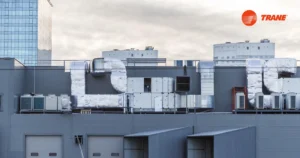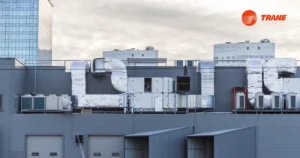The U.S. business landscape is highly dynamic, with sectors like manufacturing, pharmaceuticals, and food processing operating under demanding conditions year-round. When cooling systems fail or seasonal demand spikes, production and storage can be jeopardized, leading to costly downtime. This is where temporary chiller rental becomes a strategic solution, ensuring uninterrupted operations and maintaining compliance with strict industry standards.
Understanding the Challenge of Cooling Demands
Temperature control is mission-critical for industries across the country. From industrial facilities in Texas facing scorching summer heat to data centers in California that cannot afford a single hour of downtime, the need for reliable cooling cannot be overstated. Equipment breakdowns, unexpected surges in demand, or planned maintenance periods often put pressure on existing systems, creating a gap that needs immediate bridging.
How Rental Solutions Address Operational Risks
When an emergency strikes or additional capacity is needed, flexibility is key. Rental cooling solutions allow businesses to maintain control without committing to significant capital expenditure. They provide rapid deployment options, helping organizations handle everything from temporary outages to seasonal load fluctuations without disrupting workflows.
The Role of Chiller Service in Reliability
A critical factor in ensuring consistent cooling is regular chiller service. Businesses that partner with reliable service providers experience fewer disruptions because preventive maintenance and timely repairs keep systems performing at peak efficiency. In addition, having access to expert technicians for both on-site servicing and emergency support significantly reduces operational risks.
Key Benefits of Choosing Temporary Cooling Solutions
Investing in rentals offers several advantages beyond bridging equipment gaps. Businesses benefit from:
- Cost Efficiency: Avoiding upfront investment in permanent systems while still meeting short-term needs.
- Scalability: Adding cooling capacity during seasonal peaks or project-specific demands.
- Rapid Deployment: Minimizing downtime with fast installation and setup, crucial for sectors like healthcare and manufacturing.
- Compliance and Quality Assurance: Maintaining temperature-sensitive environments to meet FDA and ISO standards, especially vital for pharmaceutical and food sectors.
Industry Applications of Rental Cooling
Manufacturing and Industrial Plants
High-temperature environments in manufacturing can lead to equipment stress and product inconsistencies. A rental solution ensures uninterrupted production lines and optimal operating conditions, especially during summer months or machinery overhauls.
Healthcare and Pharmaceutical Facilities
Hospitals and pharma companies require precise climate control for patient safety and product integrity. A breakdown in cooling systems could compromise life-saving medications or research materials. Rentals provide an immediate safety net during outages or expansions.
Food and Beverage Processing
From breweries to frozen storage facilities, the food industry depends on reliable temperature control to prevent spoilage and meet regulatory standards. Short-term cooling solutions keep production lines running even during maintenance or seasonal surges.
Data Centers and IT Hubs
In states like Virginia and Texas, where data centers dominate, cooling systems work tirelessly to keep servers at safe operating temperatures. Any disruption can lead to costly downtime and data loss. Rental chillers act as an immediate backup, ensuring uninterrupted service delivery.
Sustainability and Modern Rental Solutions
Modern rental systems are energy-efficient and environmentally conscious, aligning with corporate sustainability goals. By leveraging advanced technology, companies not only cut operational costs but also reduce carbon footprints—an increasingly important factor in competitive industries.
The Business Case for Flexibility
Flexibility is the new competitive advantage. In a rapidly changing market, businesses that can adapt to fluctuating demands without locking in heavy investments position themselves for long-term success. Rental cooling solutions exemplify this approach, delivering reliability, scalability, and cost-effectiveness exactly when and where they are needed.
Conclusion
In an economy where downtime translates to lost revenue, businesses cannot afford disruptions in critical systems. Partnering with an experienced provider for hvac rental solutions ensures operational continuity, cost control, and peace of mind for every project, season, or emergency.




